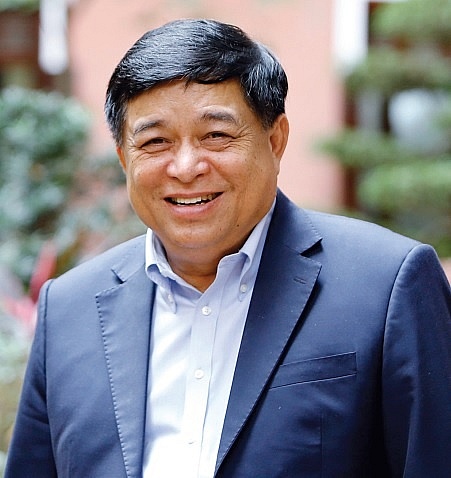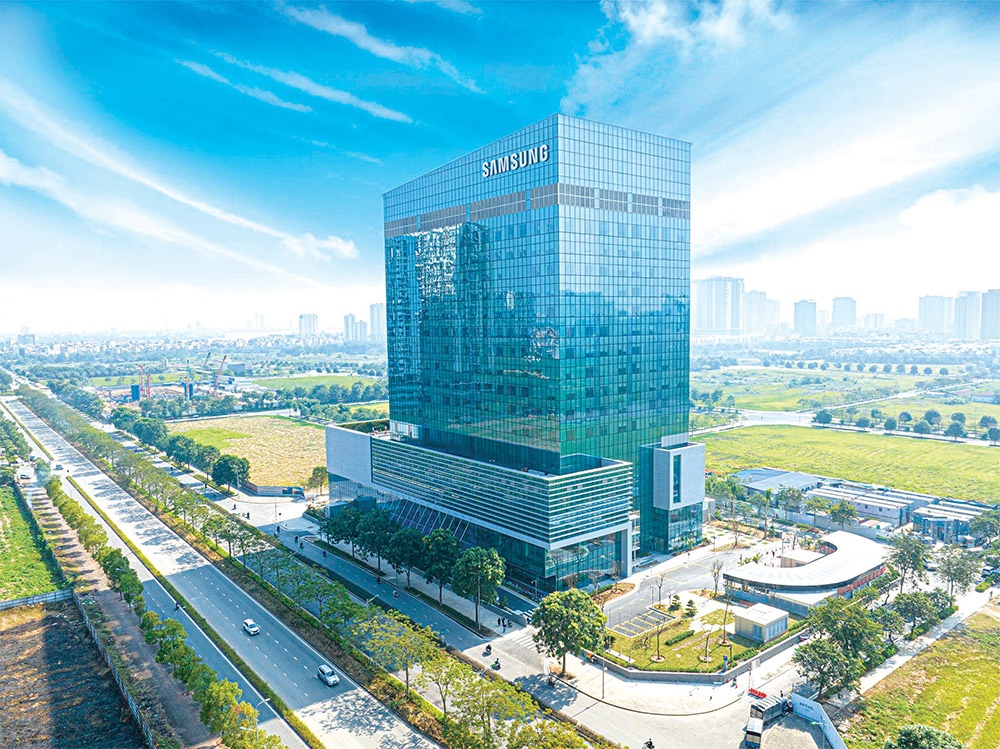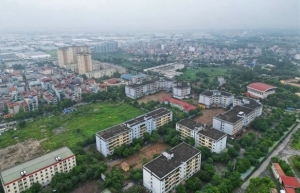Narrowing the gap towards integration
How does the Ministry of Planning and Investment (MPI) ensure its many business meetings with the world’s largest delegations and corporations lead to agreements and cooperation?
 |
| Nguyen Chi Dung, Minister of Planning and Investment |
Foreign investment promotion and mobilisation in 2023 made many positive changes, continuing to be a bright spot in Vietnam’s economic picture. Big organisations, associations, businesses, and foreign investors continue to appreciate our economic growth prospects and investment environment, as well as evaluate Vietnam as a potentially important link in the global supply chain.
Vietnam’s international position is increasingly strengthened. The upgrade of relations with the United States and Japan to comprehensive strategic partnerships has created many new cooperative spaces and created motivation for business cooperation. On every trip, Party and state leaders met and spoke with many businesses to convey the message that accompanies and creates better conditions for foreign investors.
The MPI advised and signed MoUs with the US on semiconductors, levelling up Vietnam’s role in the global semiconductor ecosystem. Many large-value cooperation agreements were inked between local and foreign businesses in 2023 and their deployment will bring substantive results and make important contributions to the implementation of the nation’s socioeconomic development goals.
Numerous large corporations and businesses came to explore investment opportunities here. Among them, the US’ NVIDIA Corporation committed to making Vietnam the group’s second homeland; Hana Micron from South Korea increased total funding to $1 billion; and the LG Innotech factory in the northern city of Haiphong expanded its project with an additional $1 billion.
In 2023, Vietnam achieved decent results in attracting foreign investment. There has also been a significant improvement in the quality of projects, most of which are in processing and manufacturing, and using high technology in electronics, semiconductor production, supporting industries, and application of advanced technology.
What challenges will Vietnam face in attracting foreign direct investment (FDI) in the year ahead?
Investors are looking to neighbouring countries to shorten their supply chains. Many markets such as South Korea, Japan, the US, and some EU members are trying to reduce foreign funding by cutting down corporate income taxes and raising local incentives.
The currencies of South Korea and Japan are devalued by 20-25 per cent, affecting the overseas investment of these two largest partners. Multinational corporations are restructuring production chains and strictly considering new funding due to declining global growth prospects and high costs.
Competition in investment mobilisation is getting fiercer. Regional countries like Thailand, Indonesia, and Malaysia with better resources, tax reductions, or more support for foreign investors, enable Vietnam to further improve its institutions and level up its position on the map.
Vietnam’s investment environment includes some difficulties for businesses. Administrative procedures such as land, construction, and fire prevention still have many inadequacies.
Industries that need to be prioritised to create breakthrough development in Vietnam, such as high technologies, innovation, and energy do not have adequate mechanisms to engage investment. Despite some incentives, the results have not met expectations. The local shortage of labour and raw materials in some industries and localities has not been resolved, leading to the risk of local supply chain disruption in the short term.
So the MPI has raised solutions to increase foreign investment attraction like reviewing and adjusting FDI policies following global trends, especially in greening the economy and transforming energy, green growth, and digital transformation.
We will accelerate the reform of administrative procedures, especially related to land, construction, fire prevention, environment, and customs. We will research and develop breakthrough mechanisms related to finance, and build the Ho Chi Minh City and Danang finance centres project to make breakthroughs in socioeconomic development.
Human resource training following the needs of businesses and trends of high technologies will be focused on. FDI mobilisation in high technologies, semiconductors, and innovation will be supported, providing the best conditions and encouraging businesses to deploy research and development activities and technology transfer. Additionally, we have the necessary conditions for infrastructure, clean land, energy, and human resources to attract large, and meaningful ventures.
 |
| photo Duc Thanh |
How will the rollout of the global minimum tax (GMT) affect the country’s attractiveness of FDI?
Vietnam will issue appropriate policies to effectively and flexibly adapt to the impact of GMT, ensure confidence, and maintain the attractiveness of the investment environment.
When applying the GMT, Vietnam will have both opportunities and challenges during the call for FDI. We have already had the right to impose additional taxes on some foreign-invested enterprises in Vietnam and domestic corporations with investments abroad, to prevent tax flows to other countries and add more revenue to the state budget.
This is a driving force to accelerate the process of transition and rollout of new policies, narrowing the policy gap between domestic law and international practices, and promoting the country’s development and integration process. It is also an opportunity to review and update incentive policies, thereby continuously improving the business environment.
This contributes to the implementation of Vietnam’s tax reform strategy to 2030 which includes developing professional human resources and applying modern IT in the context of the digital economy.
However, the application of the GMT will reduce the competitiveness of the business environment in Vietnam, and affect FDI mobilisation. It is quite difficult to lure large-scale initiatives, especially projects subject to special incentives. Retaining large investors and encouraging businesses to expand will be challenging if we do not promptly provide solutions.
There are some limitations in attracting satellite businesses in the supply chain of large investors, especially those in the supporting industries and high technologies with an important contribution to the development of industries, improving the capacity of Vietnamese enterprises, and connecting to the world’s production value chain.
The draft decree on an investment support fund from GMT revenue is being built and reviewed. What does this mean for FDI going forward?
The decision to establish such a fund and synchronously improve policies and laws on promotion to meet the requirements of the new situation is necessary.
The GMT is a fundamental change in the international tax structure, limiting profit shifting and tax competition of multinationals and going to the bottom of countries’ taxes. When the GMT rate is fixed at 15 per cent, the corporate income tax incentives in Vietnam will no longer be meaningful for businesses under Pillar 2 that their global consolidated revenue is higher than €750 million ($813.14 million), so Vietnam is no longer competitive in attracting and retaining these businesses.
While developed countries are urgently applying this rule, developing countries are carefully considering how to both raise revenue and ensure attraction to lure investment through new incentives. Therefore, it is necessary to evaluate all policies and laws on incentives to supplement and adjust new incentives and mechanisms to enhance the competitiveness and attractiveness of the investment environment.
Moreover, the establishment of the support fund to encourage and attract strategic investors and multinationals, as well as support domestic enterprises, is consistent with both FDI regulations and targets, which reflects a shift in perspectives and implementation solutions to meet the aspirations of Vietnamese entrepreneurs.
 | Hanoi attracts almost 870 million USD in FDI last month An estimated 866.8 million USD in foreign direct investment (FDI) was channelled into Hanoi in January, the municipal Statistics Office reported. |
 | Diverse FDI augurs well for 2024 With plans to establish itself as an attractive high-tech manufacturing market, Vietnam is boosting its business-oriented diplomatic activities to attract investment and expand trade |
What the stars mean:
★ Poor ★ ★ Promising ★★★ Good ★★★★ Very good ★★★★★ Exceptional
Related Contents
Latest News
More News
- Masan Consumer names new deputy CEO to drive foods and beverages growth (February 23, 2026 | 20:52)
- Myriad risks ahead, but ones Vietnam can confront (February 20, 2026 | 15:02)
- Vietnam making the leap into AI and semiconductors (February 20, 2026 | 09:37)
- Funding must be activated for semiconductor success (February 20, 2026 | 09:20)
- Resilience as new benchmark for smarter infrastructure (February 19, 2026 | 20:35)
- A golden time to shine within ASEAN (February 19, 2026 | 20:22)
- Vietnam’s pivotal year for advancing sustainability (February 19, 2026 | 08:44)
- Strengthening the core role of industry and trade (February 19, 2026 | 08:35)
- Future orientations for healthcare improvements (February 19, 2026 | 08:29)
- Infrastructure orientations suitable for a new chapter (February 19, 2026 | 08:15)

 Tag:
Tag:

















 Mobile Version
Mobile Version